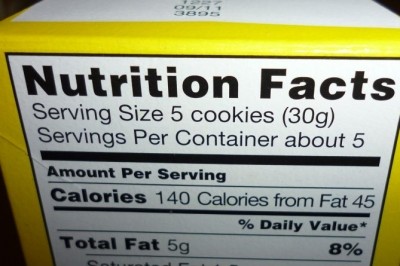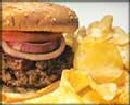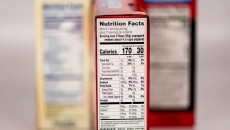FDA proposes calorie labeling on vending machines and menus
The proposed regulations, published on Friday, would mandate calorie labeling for foods sold from vending machines, and on menus in chain restaurants with 20 or more locations. Establishments for which selling food is a secondary activity, such as movie theaters and airplanes, would be exempt under the proposals.
FDA Commissioner Margaret Hamburg said in a statement: “Americans now consume about one-third of their total calories on foods prepared outside the home. While consumers can find calorie and other nutrition information on most packaged foods, it's not generally available in restaurants or similar retail establishments. This proposal is aimed at giving consumers consistent and easy-to-understand nutrition information.”
The Center for Science in the Public Interest (CSPI), which has long advocated calorie disclosure on non-packaged foods, said it strongly supports the proposed regulations, but added that it was disappointed in exemptions for food sold in movie theatres and for alcohol.
CSPI nutrition policy director Margo Wootan said: "If a movie theater is going to serve up thousand-calorie tubs of popcorn, 400-calorie drinks, and 400-calorie boxes of candy, the least they could do is tell you about it. Also, it will be confusing to customers if soft drinks are labeled on menus, but alcoholic drinks like beer and wine aren’t."
Does calorie labeling work?
Menu labeling laws are already in place in 18 states, cities, and counties, including Vermont, California, New York City, Philadelphia, and King County, Washington.
However, research into whether calorie labeling makes a difference to consumers’ food choices has had mixed results.
One study conducted by researchers from Stanford University found that calorie postings at Starbucks led to an average six percent decline in calorie consumption per purchase, and an increase in revenue. But another study, published in the International Journal of Obesity, found that calorie labeling had no effect on the number of calories purchased by adolescents in certain low-income communities, or on the number of calories parents purchased for their children.
To help consumers understand calorie labels in the context of daily dietary intake, the FDA has proposed that restaurant menus and menu boards subject to the proposed regulation should also carry the statement: “A 2,000 calorie diet is used as the basis for general nutrition advice; however, individual calorie needs may vary.”
Department of Health and Human Services secretary Kathleen Sebelius said: “These proposals will ensure that consumers have more information when they make their own food choices. Giving consumers clear nutritional information makes it easier for them to choose healthier options that can help fight obesity and make us all healthier.”
The FDA is seeking comments on the proposed menu labeling rule until June 6, while comments on the proposed vending machine rule are open until July 5. The agency said it plans to issue final rules before the end of 2011.
Instructions on how to submit comments to the FDA are available here.














